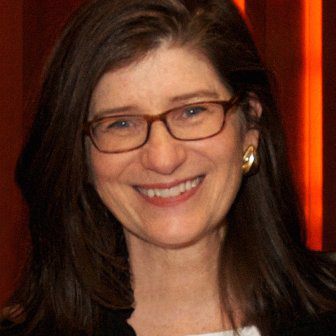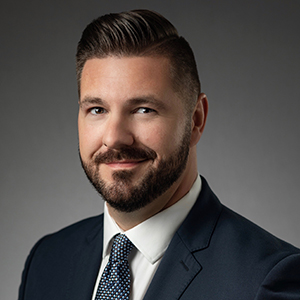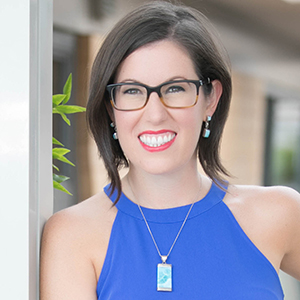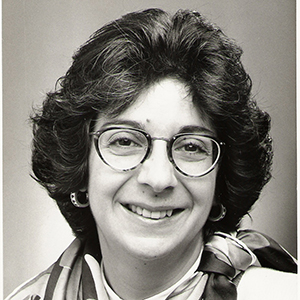Quick Links
A Career as a Life Coach
Life coaching is a growing profession with a lot of potential for people who want to help others make the most of their lives and careers.

If you’re looking to make a difference in the lives of others in a flexible profession that’s part of a growing industry, becoming a life coach might be for you.
A life coach helps others realize their potential to create positive change in their lives, whether that means breaking into a new career, improving work-life balance, adopting a new lifestyle, or making a similar life change.
Overview
Life coaching is a relatively new profession, and it’s thriving, according to the International Coaching Federation, created 25 years ago to boost the profession with ethical and educational standards. According to a study by the group, there are about 71,000 coach practitioners worldwide—an increase of 33% over 2015.
“Coaching is at a pivotal point in its history,” says Luke Davis, vice president of ICF coach training programs. “Coaching is a real profession and is now globally recognized as such.”
While there are no educational requirements to become a life coach, pursuing a certificate through a training program is strongly recommended as a way to attract clients or get hired by a business or organization.
“Coaching is an amazing process, and there are many theories and research studies that support what coaches do,” says psychologist and leadership coach Carol Kauffman, PhD, ABPP, PCC, founder of the Institute of Coaching at McLean Hospital in Boston.
It’s worth noting that while they may share similar traits and skills, therapist and life coach roles are distinctly different. Life coaches focus their work on the future, while therapists focus on the past.
What Is a Life Coach?
According to Davis, the ICF defines the coaching process as “partnering with clients in a thought-provoking and creative process that inspires them to maximize their personal and professional potential.”
While the process may be similar for all life coaches, each coach’s practice is unique. Here’s how four life coaches describe their work:
Carol Kauffman
In addition to being a co-founder of the IOC, Kauffman is an assistant clinical professor in the Department of Psychiatry at Harvard Medical School and a leadership coach with more than 40,000 hours working with leaders to raise the bar on performance and manage success.
“I am most interested in coaching where the stakes are high, the outcomes uncertain, and it can be necessary to intervene quickly,” Kaufman says.
Catherine Wood
Catherine Wood, the founder and head coach of the personal coaching firm Unbounded Potential, works with high performers and entrepreneurs committed to making a big impact in their work.
“I help you discover the essence of who you really are,” says Wood, “and support you in bringing your most authentic self to all areas of your life.”
Angelina Corbet
Angelina Corbet is a former corporate executive who founded The Mobius Company to work as a coach and teacher with organizations and individuals. Corbet says she provides clients with the opportunity to learn from the past, create the future, and live fully in the present.
“My process is designed to help you remember who you are, to nurture others, be of service to all, and live compassionately in the world,” she says.
Jenny McGlothern
Jenny McGlothern, owner of Mama Needs A Refill, a retreat and life coaching business, holds mini retreats for women, leads teen workshops, and creates custom private retreats for other clients.
“Coaching is so much easier if you divorce your head and listen to your heart,” she says. “The best coaches hear what is not spoken” when they work with clients.
Who Becomes a Life Coach?

For many, life coaching is a second career. According to Davis, coaching often appeals to those who have already achieved success in other endeavors and careers. Many of these career changers have degrees and professional credentials. Now they’re seeking a role with more flexibility, and one in which they believe they’ll make a difference.
According to a study by the International Coaching Federation, there are about 71,000 coach practitioners worldwide—an increase of 33% over 2015.
For others, such as a stay-at-home spouse, coaching is an excellent second-income opportunity for people who want to work part time.
Working with Clients
While life coaches may have different philosophies, their steps to success are similar:
- Get to know clients and gauge compatibility, often in a “discovery” call
- Help clients identify their goals
- Encourage clients to develop targets and next steps
- Provide support and encouragement on their client’s journey
- Celebrate with clients when goals are met—or an “aha” moment occurs
Traits of a Successful Life Coach
Creating a rapport with clients is a must. To build the trust needed to help clients succeed, life coaches should be:
- Empathetic
- Intuitive
- Compassionate
- Patient
- Positive
- Creative
- Supportive
- Non-judgemental
- Goal-oriented
Career Paths
Many life coaches start their own businesses for the freedom and flexibility that come with being their own boss and being able to choose clients they can best serve. Your clients could be:
Partners seeking to improve their relationship
A person who wants to change their work-life balance
A professional who wants to strike out on a new career path
Other life coaches are employed by corporations, insurance companies, recruiting firms, social service and government agencies, and medical facilities. In these settings, your clients may be:
A company seeking to improve the leadership skills of top management
A patient recovering from heart surgery who needs to make lifestyle changes
An employee with wellness coaching included as part of a company’s group insurance plan
An executive seeking employment
Specialties
Life coaches may be a natural at certain types of coaching and choose to specialize in areas such as:
- Health and wellness
- Relationships
- Executive leadership
- Internal and organizational improvements
- Work-life balance
- Spirituality/mindfulness
- Life transitions
- Academics
Education Needed to Be a Life Coach
The coaching industry is unregulated, and there are no education or state licensing requirements to be a life coach. But within the industry itself, there’s a strong consensus that professional training and education are necessary for success.
Many people take a life coach training program to earn a certificate and gain the skills and knowledge that can set them up for success. Earning a coaching credential also can help coaches stand out from the competition and attract clients looking for professional, polished services.
According to an ICF survey, 95% of coaches have completed 60 or more hours of training, and 43% have 200 hours or more. There’s a broad range of coaching programs—some take six weeks to complete while others can take a year.
The ICF is recognized as the leading professional group in the coaching industry. It has worked with other coaching interest groups around the world to establish standards and ethics for coaching. It also accredits coaching programs and offers professional credentials for coaches with varying levels of expertise and experience.
International Coaching Federation
The International Coach Federation was founded in 1995 as a nonprofit organization for fellow coaches to support each other and grow and professionalize the profession. Since the coaching industry is unregulated, the ICF has set widely followed standards for the profession.
Now, with more than 40,000 members globally, the ICF has become the premier organization in the world for coach practitioners. It is the gold standard for coach training accreditation and coach credentialing.
What to Look for in a School
There are many coaching schools and programs, and they offer a wide range of training options. As coaching has gained popularity, some universities and colleges have added coaching classes to undergraduate and graduate degree programs, and many offer post-graduate certificates in coaching.
According to the International Coaching Federation, 95% of coaches have completed 60 or more hours of training, and 43% have 200 hours or more.
When choosing an educational path, look for an ICF-accredited program or school for two reasons:
- ICF accreditation is recognized by the industry as a whole and indicates that a school or program has met rigorous educational standards.
- Completing an ICF-accredited program qualifies you to earn a professional credential from the ICF.
Davis suggests looking for these features when checking out coaching programs:
- Coaching skills training: in areas such as active listening, questioning, and nonverbal communication
- Coaching practicum: in which students practice using coaching skills on fellow students or volunteers
- Mentor coaching: in which a professional coach gives students feedback on their coaching skills
- ICF coach ethics: training in the ethics and principles expected of coaches by the ICF
Training Formats
There is a lot of flexibility in coach training. Companies and schools that offer training generally have classes online, in person, or in a hybrid format. Coaching schools are very flexible and have several options available.
The ICF has a searchable directory of accredited programs and course providers.
Certification and Licensing
There are no license requirements for life coaches. The ICF, however, offers three optional coaching credentials based on hours of training and experience:
- Associate Certified Coach (ACC): for entry-level coaches with 100 hours of coaching experience
- Professional Certified Coach (PCC): for experienced coaches with 500 hours of coaching experience; they often serve as mentors for new coaches
- Master Certified Coach (MCC): for the most highly skilled and experienced coaches; a minimum of 2,500 hours of experience is required
These credentials are highly respected within the coaching industry and let potential clients know that you’ve been trained according to ICF standards.
Financial Aid
Federal financial aid won’t be available for most coach training programs and courses because these are certificate programs rather than programs that offer bachelor’s or master’s degrees.
Aid may be available for a few university and college programs that incorporate coach training into undergraduate and graduate degree programs. Check with a program advisor for information regarding financial aid.
Salary and Job Outlook
The BLS doesn’t have a life coach category for reporting wages and instead includes them with educational, guidance, and career counselors and advisors.
According to the U.S. Bureau of Labor Statistics (BLS), job growth for life coaches is projected to be 5.4% through 2032, faster than the average growth of 3% for all jobs during the same period. These professionals earn a median salary of $61,710 per year. Professionals in the top 10% earn $100,050 annually.

Written and Reported by:
Sheila Mickool
Contributing Writer
With professional insight from:

Carol Kauffman, PhD, ABPP, PCC
Founder of the Institute of Coaching

Luke Davis
Vice President of ICF coach training programs

Catherine Wood
Founder of Unbounded Potential

Jenny McGlothern
Owner of Mama Needs A Refill

Angelina Corbet
Founder of The Mobius Company
